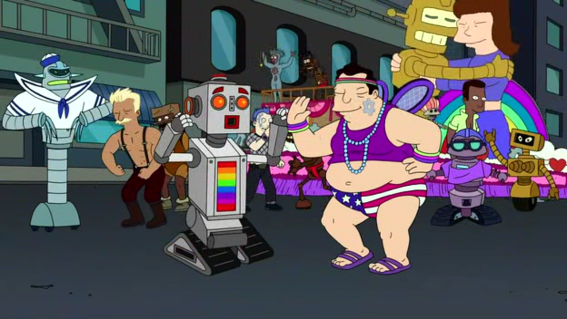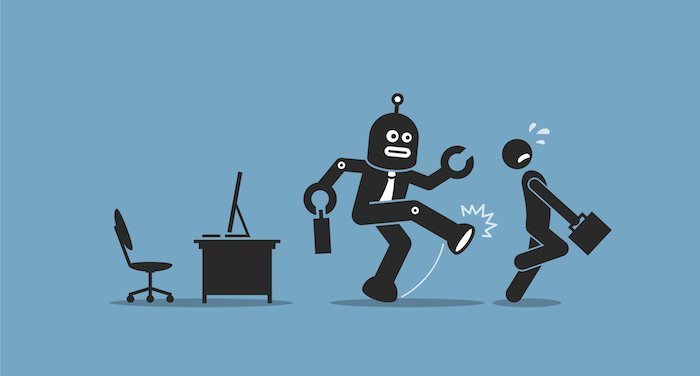The ironic thing about living in this information age, with technology advancing at an unprecedented rate, is that there really haven’t been all that many truly new ethical problems to sort out yet. Sure the internet has created virtual worlds from scratch, and personal surveillance drones have suddenly made the jump from ‘science fiction’ to ‘$19.95 at Dick Smith’, but despite the new technical complications both of these basically boil down to the issue of privacy – something society has had a long debate about for hundreds of years. The emergence of global terrorism has lead us to willingly forsake civil liberties we used to hold dear, but again, the general debate of ‘security versus freedom’ has been around forever.
Sure, the continued march of technology is likely to give us plenty of terrifying new ethical issues to tackle someday soon. Should cloning be allowed? Does lab-grown meat qualify as alive? Is immortality a good thing or not? Does teleportation technically kill you every time you use it? But as interesting as they are, all these questions are still a long way off ever needing an answer.

Robosexuality; born that way or godless abomination?
But good news for anyone after a juicy new idea to dig into right now: there is one massive new ethical question currently lurking in society right now, that you either haven’t noticed yet, or are desperately trying to ignore. Specifically, these things:

Dun, dun, daaaaaaaah.
That’s right, the self-checkout in every supermarket these days. They may seem totally harmless to you now, but they harbor a dark, sinister plan. In addition to mildly infuriating millions of shoppers every day, these handy little buggers present possibly the greatest threat to human civilization in recorded history. And no, I’m not joking.
Right about now many of you will be rolling your eyes. ‘This is going to be some dismal rant about replacing low-income jobs with technology, isn’t it? That’s not new! That’s been a constant theme in human history ever since Ug the Hunter was down-sized and replaced by a guy with a pointy stick.’ And you’d be right – the progress of civilization can practically be measured by how technology has replaced old fashioned human labour and put people out of jobs.
Agriculture is the perfect example of this; thanks to the development of agricultural science, disease management, plant breeding and farm machinery, humanity has managed to turn the growing of food from something that nearly everyone had to do in order to survive, into a profession that less than 1% of the population get stuck with. The single most important profession in our lives, second only to fresh water, and modern society mocks it as a dead-end job for cultureless hillbillies. For the most part, technology has reduced the human element of farming down to ‘making sure the machines are working right’, and while this hasn’t been great for farming employment, it’s been excellent for humanity as a whole.
The same goes for other fields such as manufacturing, retail, transportation, the military, and even making movies – science and technology have hugely decreased the number of human workers involved, and boosted the productivity of these industries massively as a result. And while this might cause pain for the replaced workers in the short-term, it’s been the distinct advantage of humanity as a whole, as products and services become cheaper, and workers are more able to pursue careers they enjoy, rather than simply working to live.
So hooray for self-checkouts, right? How could they ever pose a threat to human society as a whole? Well you know how technology occasionally replaces human in a given profession, and those people have to go and struggle to find new jobs?
What if technology suddenly replaced EVERY profession, and there were no more jobs to go and find?
This superb video by CGP Grey (fantastic videos by the way, go check them out) introduced me to this topic and paints the picture very clearly: there is no single task you can imagine that a sufficiently advanced machine cannot do better. Remembering things? A computer has 100% perfect recall. Moving things around? An automated forklift can move more, faster and safer than you can. Heating up a room? An air conditioner can get the temperature to the degree, while you’re still trying to find the matches.
Even with more complex tasks, machines are often superior to you. Navigation? I’ll take Google maps over a squishy co-pilot any day of the week. Building a car? This production line is faster, safer and more accurate than you will ever be. Medical surgery? Your potassium-deficient mortal reflexes are no match for the cold precision of a robot surgeon. Hell even self-driving cars are better at it than many people these days.
Sure that’s not to say that machines don’t frequently break down, stuff up or occasionally attempt to kill their creators;

Nor is it to say that machines are currently better than humans at every task;

But here’s the fun thing about machine weaknesses: they’re caused by humans. That homicidal chip-bot up there didn’t suddenly decide to start the revolution – it went haywire because its squishy human programmer made a mistake. That robot that took a nosedive off the stage wasn’t seeking the sweet release of death – its programmer/designer/manufacturer made a mistake. To put it simply, machines cannot make mistakes because machines do not make decisions. Saying the robot ‘failed’ is like saying you coffee mug performed poorly because you elbowed it off your desk.
No, the only thing preventing machines from being superior to humans in literally every possible task is how long it takes us dim-witted, fallible humans to figure out how to design, manufacture and program the machines properly.
‘But what about the arts!’ I hear you cry, ‘How could a machine ever compose a symphony or act in a movie better than a human? How could something that isn’t alive ever appreciate something subjective like a favourite colour, delicious meal, or the company of friends?’. Pretty damn easily, I would reply. Granted it would be pretty impossible for a machine to develop its own personal emotional appreciation for art, but if what we’re asking it to do is simply produce high-quality art, then it doesn’t have to. All it needs to do is understand what the audience wants, then compose art that meets those preferences. A symphony may indeed be complex, laced with human tragedy drawn from the composer’s personal experiences, virtually impossible for another person to precisely appreciate and replicate. But when you get right down to it, a symphony or performance thereof is a combination of sounds. These sounds are combinations of vibrations at various timings. Both time and vibration can be measured and replicated. And therefore a sufficiently advanced machine can produce a symphony. Record and analyse enough successful symphonies, along with what characterizes a popular symphony, and all it’s going to take is a bit of trial and error before we have a machine capable of producing better music than a human – except it will also be faster, cheaper and never throw a TV out of its hotel window.

Also none of… whatever this was.
This sort of thing might seem like it’s a hundred years away, and maybe so. But given the rate of technological development has been exponential in the last decade (ie. holy crap that graph is going vertical) then maybe not.
All in all the undeniable fact is that machines either are, or else very soon will be, superior to humans at nearly any job you can imagine. Which means that, rather than just one profession being replaced and having to find a new career, we’re looking at a VERY likely scenario in the near future where human labour is completely redundant.
That might sounds neat, but consider the implications of this scenario for a second. Our economy currently functions on the idea that people work to make money, spend that money on things they need/want, which creates jobs that they can work in. But as machinery gradually replaces 20%, then 50%, then 80%, then 99% of humans in jobs, for the obvious reason that they’re better at everything and don’t need to be paid, suddenly our great economic cycle comes to a screaming halt – if people don’t have jobs, then how can they make any money? And how can businesses make any money if no one has any money to spend?
Remember when I said that self-checkouts present the greatest threat to human civilization in recorded history? Well this is what I was referring to. We are talking about the complete breakdown of the economy here – a catastrophic deadlock whereby capitalism’s demand for growth completely undermines that growth in the process, bringing the entire shebang to a screaming halt.
And what can we do at this point?! We have industry producing at nearly 100% efficiency, employing machines FAR better at their jobs than any human could ever hope to be, but with no one able to buy anything because no one has jobs. Do the businesses deliberately lower productivity to employ people? But then why would those employees spend their wages at human-employing businesses when machine-employers have cheaper and better products? Does the government simply supply every citizen a wage to buy what they need? But where does the government get its money from now that the economy has completely stopped? What are they taxing? Do we outlaw machine employment completely so that jobs are available again? That simply puts the problem off, rather than resolving it. We’d effectively be declaring technological progress finished and the human race stagnated.
This problem – an almost inevitable problem that’s not very far off, I’d remind you – requires nothing less than a complete overhaul of how humanity thinks about money, work and society in general. Everything we have built over millennia to manage how life works is suddenly threatening to destroy us, and we must radically rethink it if we are to survive our own success.
Fortunately many bright minds, like CGP Grey, have already begun to consider the problem. But while whatever clever solutions they come up with are extremely important, they will not be enough – we are talking about total social upheaval here and that requires everyone to participate. As with every period of great change, there are those who will attempt to pervert it to their own ends, hanging on to old ideas for profit, out of fear, or simply through ignorance. Only through understanding the problem thoroughly and staying abreast of the options available to us can we all hope to come out of this with an in-tact economy.
For once dear reader, this is not a problem I have an answer to, largely because the problem itself hasn’t even really emerged yet. But the facts to date make it clear: this is a problem that we WILL have to deal with at some point in the next 20 years, and therefore we must be prepared for it, lest we cock it up.
Further reading! Get informed:
https://www.theguardian.com/world/2017/jan/03/finland-trials-basic-income-for-unemployed
http://www.technologyreview.com/featuredstory/515926/how-technology-is-destroying-jobs/
http://io9.com/how-universal-basic-income-will-save-us-from-the-robot-1653303459



















Pingback: The Ethics Of… Resistance (Part 1) | The Ethics Of